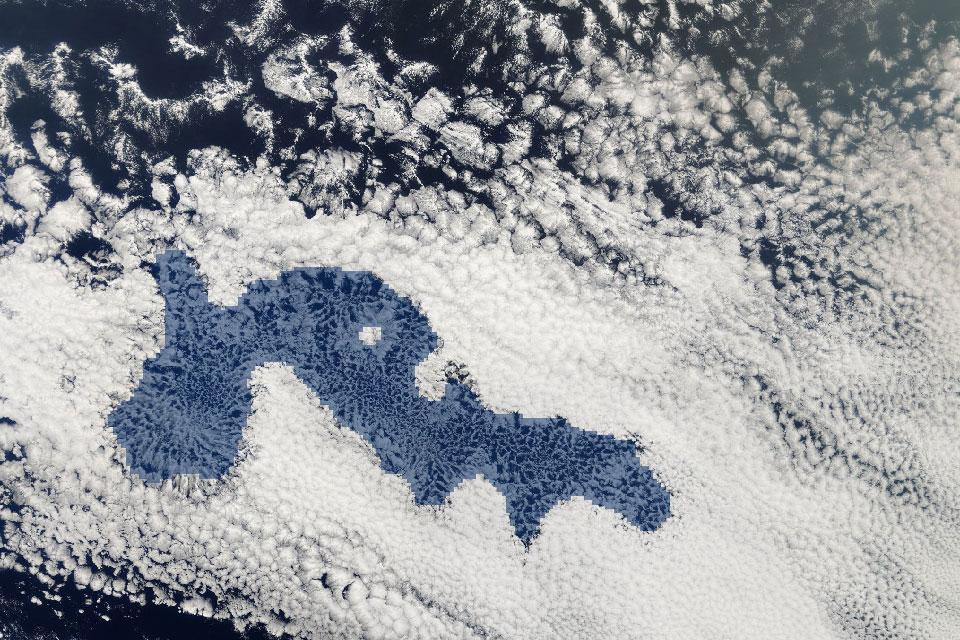Dr Duncan Watson-Parris along with Professor Philip Stier in the Department of Physics are bringing together leading researchers from around the world for a United Nations ITU AI for Good: AI for Climate Science discovery series. The series highlights nascent work applying this technology to the field of climate science; Dr Watson-Parris shares an overview of where we are and where we need to be.
Climate change is one of the most pressing global challenges, with human emissions now accepted ‘unequivocally’ as the cause. However, significant scientific uncertainties remain regarding the Earth’s climate sensitivity, which directly translate into uncertainties in the remaining carbon budget on the path to achieving the targets of the Paris Agreement. As more and more data becomes available, what role can artificial intelligence (AI) play in forging a way forwards?
Big climate data
Over the last couple of decades, advances in satellite remote sensing have provided a deluge of observations of our Earth, providing information about the ocean, land and atmosphere in unprecedented detail. This has allowed us to learn more than ever about the complex processes underpinning ecosystems around the world, and to monitor the effects of climate change on these.
At the same time, climate models of increasing complexity and fidelity have participated in internationally coordinated experiments to understand the role of human emissions of greenhouse gases, but also other forcing agents such as sulphate aerosol, in historical temperature trends. These models also provide the basis of future projections of climate change under a range of hypothetical socioeconomic scenarios.
The petabytes of data that these activities produce leaves climate scientists increasingly looking to new approaches for performing their analyses and research.
Machine learning for climate
The field of machine learning has seen a series of dramatic breakthroughs over the past decade, driven by the development of new data-intensive algorithms. The advances in image recognition and object detection have obvious applications in remote sensing, for example in being able to detect particular types of clouds (POC paper) while others, such as in reinforcement learning, are still relatively unexplored. In Oxford, we have been exploring the use of machine learning for emulating computationally expensive model code, from individual components all the way up to a whole climate model and have recently released an open-source tool to make this easy for scientists (ESEm).
Large-scale efforts are also starting to be formed to capitalise on these advances. The EU-funded Marie Skłodowska-Curie iMIRACLI (innovative MachIne leaRning to constrain Aerosol-cloud CLimate Impacts) Innovative Training Network led by the Department of Physics (www.imiracli.eu) brings 15 PhD students together from across Europe to apply these approaches to understanding the effects of aerosol on clouds. The Climate Modelling Alliance (CliMA) is looking to build an entirely new climate model in a modern programming language to enable more efficient use of observational data using techniques borrowed from machine learning – you can learn more about this topic in our first scientific highlight talk by Professor Tapio Schneider: https://www.youtube.com/watch?v=6HWWcsm5V00
Man AND machine
These are just the tip of the iceberg though and machine learning will have an increasingly important role to play in ensuring that policy makers have accurate and timely information on the climate implications of their decisions. Informed discussion is vital: our AI for Climate Science discovery series brings together leading voices from academia, industry and policy and provides a forum to ensure climate science is able to capitalise on these advances in AI and machine learning in a coordinated and collaborative way. There are weekly highlight talks aimed at a broad audience running until early 2022 and you can see the programme and find out how to listen live here: https://aiforgood.itu.int/eventcat/discovery-ai-and-climate-science/. All talks are also being recorded and are available on YouTube: https://www.youtube.com/c/AIforGood

